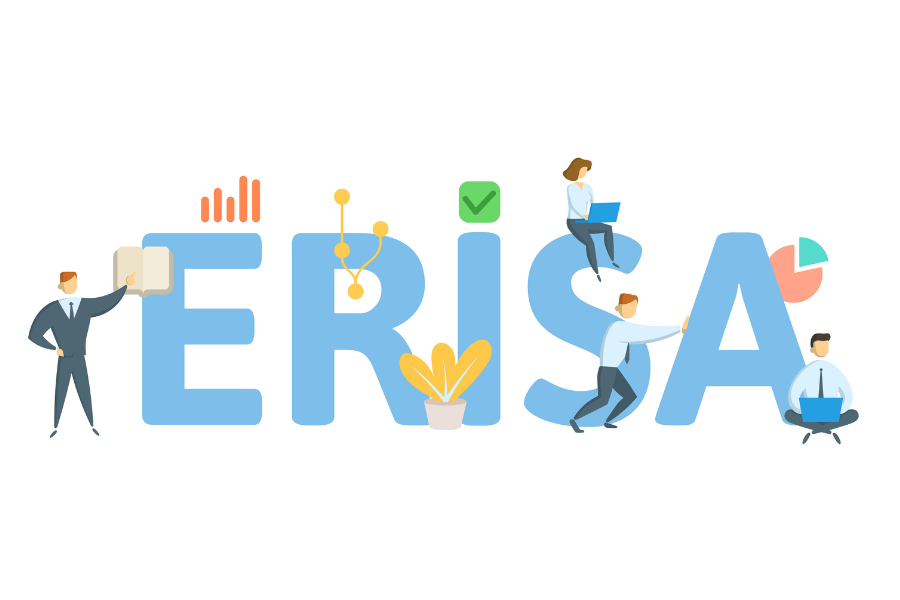Is It Time for ERISA 2.0?

“All good things must come to an end,” so the proverb says. And, while it may not be the case that the Employee Retirement Income Security Act (ERISA) of 1974 should actually be terminated, some experts are suggesting that the 50-year-old, landmark legislation governing retirement accounts in the U.S. could do with a bit of updating.
Not that ERISA wasn’t needed or useful. According to Angela Antonelli, research professor and executive director of the Center for Retirement Initiatives at Georgetown University, ERISA did a good job of making sure that employers kept the promises made to participants in their pension and defined benefit plans. “What ERISA didn’t necessarily do was to make employers make new promises,” Antonelli says. “It was protecting the promises that were being made, but not necessarily making them make new promises to workers.”
As evidence of the gap between what ERISA accomplished and what needs improvement, some recent statistics may offer perspective. According to a report released last September by the Investment Company Institute, Americans held some $10.2 trillion in employer-sponsored defined contributions plans, $7.2 trillion of which was in 401(k)s. So far, so good. But according to data from the Employee Benefit Research Institute, inflation has dented many American workers’ contribution levels—especially those of lower-paid workers—and fewer report confidence that their retirement savings will be sufficient for their needs, post-career.
Other observers mention the fact that during the 50 years of ERISA, employee participation levels in workplace plans have decreased overall. Not only that, but less than half of American workers have access to a workplace retirement savings plan of any kind. By now, we know that the best way to encourage people to save is to give them easy access to a payroll-deducted plan at their place of employment, but many lower-wage employees are still outside the system, and the rise of the gig economy has only exacerbated the trend. Further, defined benefit (pension) plans have practically become relics of the past; the all-but-extinction of guaranteed lifetime incomes for retired persons has serious implications for the financial security of both present and future generations of retirees.
David Morse, writing in the Autumn 2023 issue of Benefits Law Journal, suggests that an “ERISA 2.0” could remedy some of the ills currently plaguing the retirement savings landscape in the U.S. After restating the truism that “saving is hard without the nudge, guidance, and convenience of a workplace plan,” he says, “ERISA 2.0 should give everyone access to some sort of savings program… Whether through an employer 401(k)—even without a match—a state-run auto-IRA, opening the federal thrift plan to all, or a new national savings vehicle, at the very least, everyone should be covered by some sort of retirement plan.” He also recommends removing the liabilities associated with defined benefit plans that tend to make them “toxic” to employers. “ERISA 2.0 should enable employers to adopt a pension-like plan where workers receive lifetime income but employers only are responsible for the annual contribution.” Such a modification would relieve employers of the legal worries that go with guaranteeing the lifetime income of the pensioner. He also argues for broader use of defaults—such as the requirement for automatic enrollment in 401(k) plans mandated by SECURE 2.0, starting in 2025—as a way of encouraging more employees to make the right choices for their retirement savings without having to think about it so much. “In effect,” Morse says, “defaults enable most participants to make prudent decisions by doing nothing.”
From a practical perspective, there’s little on the legislative horizon to suggest that meaningful modification to ERISA is high on anyone’s agenda. The recent passage of SECURE 2.0 was certainly a significant step in a good direction, but it is still true that more needs to be done in order to materially address America’s looming retirement savings crisis.
In the meantime, employers who are offering well designed plans, investing time and resources in communicating effectively with employees about the benefits and options available, and systematically reviewing their plans each year to make sure they remain competitive provide our current best hope for better retirement savings outcomes in the lives of most Americans. Until something better comes along, it’s important to keep using the tools at our disposal in the most effective way possible.
Savant Wealth Management’s Company Retirement Plan Services is dedicated to helping the employers who are the backbone of the economy by providing advice, design, and administrative support for employer-sponsored retirement plans. To learn more, visit our website to read our article, “Choosing a Plan Provider: Some Key Questions.”
Savant Wealth Management (“Savant”) is an SEC registered investment adviser headquartered in Rockford, Illinois. Past performance may not be indicative of future results. Different types of investments involve varying degrees of risk. You should not assume that any discussion or information contained in this document serves as the receipt of, or as a substitute for, personalized investment advice from Savant. A copy of our current written disclosure Brochure discussing our advisory services and fees is available upon request or at www.savantwealth.com. The scope of the services to be provided depends upon the needs of the client and the terms of the engagement.

